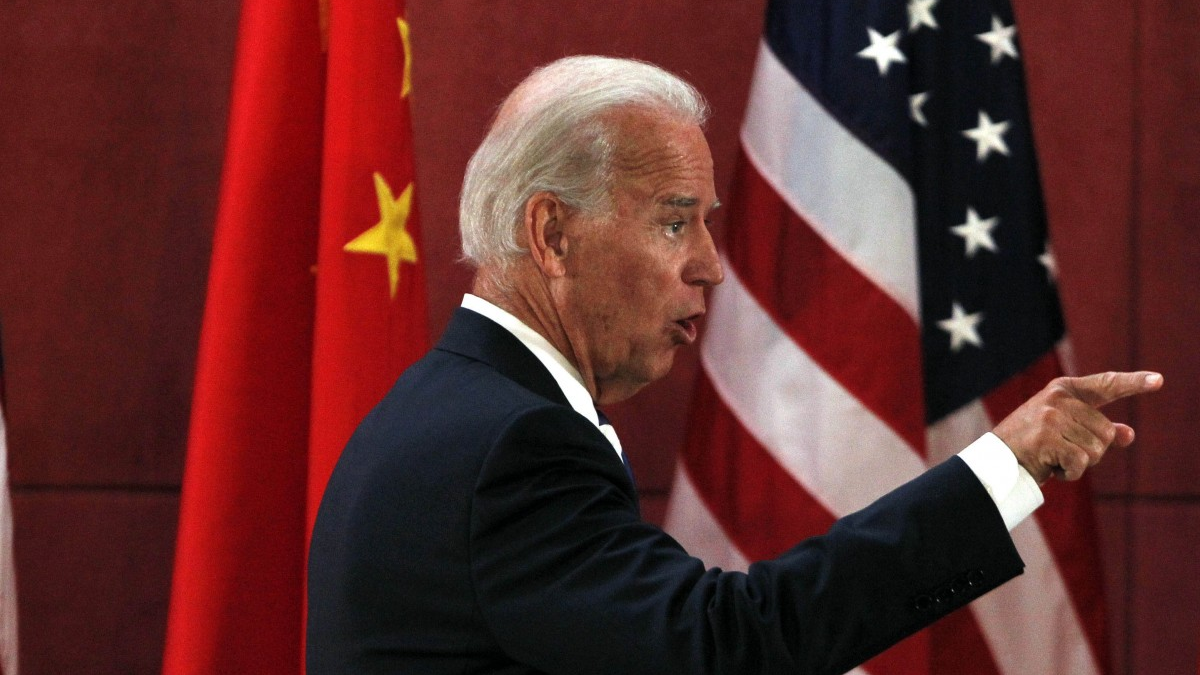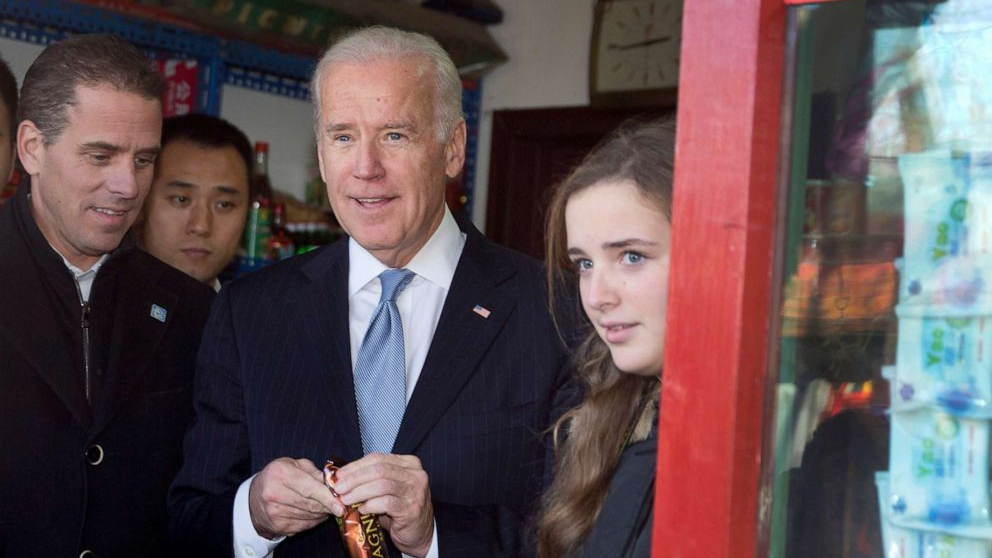
Former U.S. Vice President Joe Biden points to the audience as he leaves after delivering a speech at Sichuan University in Chengdu in southwestern China's Sichuan province, August 21, 2011. /AP
Former U.S. Vice President Joe Biden points to the audience as he leaves after delivering a speech at Sichuan University in Chengdu in southwestern China's Sichuan province, August 21, 2011. /AP
Editor's note: Hannan Hussain is an assistant researcher at the Islamabad Policy Research Institute and an author. The article reflects the author's opinions and not necessarily the views of CGTN.
When it comes to Joe Biden's election of a lifetime, there are no easy answers on China. The former U.S. Vice President does not share Donald Trump's enthusiasm for an all-out trade war with Beijing, yet remains committed to a signature hard line on Xinjiang, Hong Kong and Taiwan.
Biden has pressed to revive American leadership at the global level but has been exceedingly reluctant to disprove Trump's "Made in China" allegations. He surrounds himself with a pool of advisers who endorse getting tough on Beijing but also admit the pitfalls in Washington's own national performance.
Despite the uncertainties, Biden's emphasis on multilateralism, better foreign policy articulation and demonstrated statecraft ensures his China policy stands different from that of his rival.
A major part of Biden's foreign policy vision is to rebuild America's long-standing alliances and steer them toward cooperation instead of coercion. His team will attempt to revive the 2015 Joint Comprehensive Plan of Action (JCPOA) and salvage Washington's credibility in a fragile NATO alliance.
Biden's fixation with U.S. "power projection" also limits the space for coercive rhetoric at key decision-making seats, such as the United Nations Security Council and the World Health Organization (WHO).
His goal to recommit to the Paris Agreement creates space for broad-based consensus-building, driven by the belief that environmental justice transcends political persuasions. Even on the challenge of tackling future disease outbreaks, Biden has forced America to reckon with its rapid response deficiencies and focus scrutiny inward.
This is a welcome shift from his Republican counterpart, who continues to attribute America's COVID-19 leadership failures to foreign mythology.
It is against this backdrop that Biden's multilateral worldview runs parallel to Beijing's demonstrated pursuit for global cooperation, affording new openings for foreign policy convergence.
For instance, on JCPOA, China joined a range of Western allies to reaffirm its commitment to the nuclear pact based on its contribution to global nuclear non-proliferation architecture. That is a strategic rationale repeatedly backed by Biden and his allies.
Similarly, an American re-entry into the WHO would put the brakes on Sino-U.S. divergence, given how U.S. obstructionism and financial strong-arming became the basis for American departure.
On climate, Beijing represents a significant conversation that can complement Biden's push toward net-zero emissions by 2050. Some of China's top state energy producers are the first in Asia to make those targets official, with the government tapping nuclear power projects to accelerate headway on non-fossil energy by 2030.

Former U.S. Vice President Joe Biden, center, buys an ice-cream at a shop as he tours a hutong alley with his granddaughter Finnegan Biden, right, and son Hunter Biden, left, in Beijing, China, December 5, 2013. /AP
Former U.S. Vice President Joe Biden, center, buys an ice-cream at a shop as he tours a hutong alley with his granddaughter Finnegan Biden, right, and son Hunter Biden, left, in Beijing, China, December 5, 2013. /AP
Also, America's shambolic COVID-19 handling has made clear the value of research and development partnerships with China. Washington's steady reduction of Centers for Disease Control and Prevention (CDC) personnel in Beijing illustrates the difficulties faced by Washington in tackling the virus without pandemic-time cooperation.
Biden would assume office with a point to prove to America's scientific community, where enthusiasm for U.S.-China escalations is scarce.
However, a Biden presidency also sustains some of America's hard-line policy positions: refusal to read Hong Kong and Taiwan as Beijing's internal matter, mobilizing support for a toxic Xinjiang narrative and activating party consensus on South China Sea interference. Unlike Trump, Biden is also better positioned to sell America's anti-Huawei pitch to global allies.
Yet, assessing the Biden challenge on known policies is to miss the point somehow. The key intensifier in Sino-U.S. relations has been inadequate communication. Trump's absolute aversion to constructive dialogue with Beijing has allowed U.S. hostilities to amplify in isolation.
A Biden victory offers an opportunity to transform some dynamics. Biden's official track-record is informed by a degree of foreign policy statecraft, and he recognizes the value of constructive dialogue in diffusing tensions, even if tactical. Above all, the former vice president will find it increasingly difficult to measure Sino-U.S. progress based on confrontational metrics introduced and practiced by Trump.
To illustrate this dilemma, consider Biden's recent threat to "sanction Chinese officials" over Tibet. On the one hand, Biden test-drives coercion to appear tough on Trump. But as president, he must decide if issuing ultimatums to China will earn credit with global partners, or temper the blowback of Trump's "America First" agenda.
For China, the reality is much simpler: If Biden is truly determined to reconcile with Beijing, nothing should stop him from coming to the negotiating table.
(If you want to contribute and have specific expertise, please contact us at opinions@cgtn.com.)